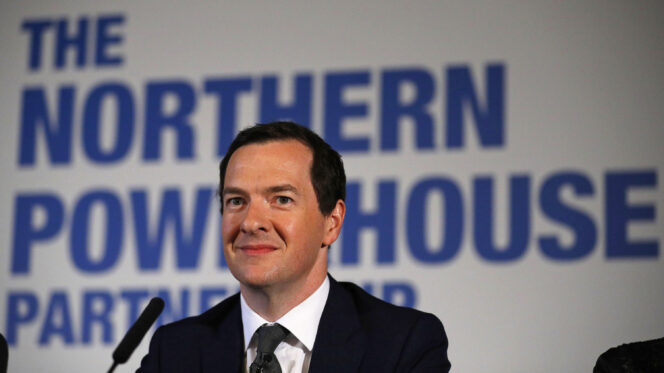Southern England Needs Metro Mayors
The south has no cities outside the M25, apparently.
by Aaron Bastani
16 July 2024

Last week, city mayors from across England gathered at Downing Street to meet Britain’s new prime minister, Keir Starmer. Every metro mayor – those who represent a combined authority – has been tasked with generating a strategy for economic expansion, with Starmer declaring that regional leaders would be “central” to his ambition of securing the fastest growth in the G7.
Yet on examining the places represented at that roundtable, one thing stood out. The UK’s largest region by population – south-east England, which has almost ten million inhabitants – was absent. Not a single city in this heavily populated region has a metro mayor.
While the same is true for Scotland and Wales (I think Glasgow, Edinburgh and Cardiff should all have powerful civic leaders), there is at least a decent counter-argument: Holyrood and the Senedd have started to give these places the political heft they deserve. But what about the English south?
Take Hampshire, a south-eastern county with a population approaching two million. That’s more than Merseyside, South Yorkshire, and Tyne and Wear – all places we identify with city life. Yet Britain’s fifth largest county is regarded as a rural afterthought. The FT columnist Janan Ganesh even described Rishi Sunak as “non-urban” because he was born in Southampton – a city with quarter of a million inhabitants, similar to Lille or Bordeaux in France. Indeed, opinion-makers seem to think the south has no cities outside the M25. This has massive consequences for the quality of local government – not to mention the national economy.
Not only is Britain one of the most urbanised countries in the world, but its population growth overwhelmingly comes from cities. The rate of urbanisation in recent decades is more typical of a developing country: the percentage of Brits in urban areas has increased by 5% since 2000, compared to 4% in Pakistan and 7% in India. But judging by how the south of England outside London is discussed, you’d think the opposite was happening.
Just down the M27 from Southampton is Portsmouth. It’s hard to see the two cities ever existing in a combined authority (the political equivalent of mixing nitrogen and glycerin). But distinct metro areas for the south-east and south-west of Hampshire makes sense. Alongside Portsmouth are the towns of Havant, Gosport and Fareham. Total population of the area: half a million. Southampton sits beside Eastleigh and the Test Valley. Total population: also half a million. Portsmouth is home to the Royal Navy. Dickens and Brunel were born there. HG Wells and Conan Doyle lived there. Southampton, the city from where the Titanic set sail, was once titled the “gateway to the world”. Yet Britain’s media class considers these places backwaters, incapable of properly governing themselves.
Further west are Bournemouth, Poole and Christchurch. Population: 400,000. ‘BCP’ has the benefit of already being a unitary authority. And yet like Portsmouth and Southampton, it barely features in the national conversation. There’s also the Brighton Greater City Region, where the population touches almost a million. This is more than locales of global repute like Seattle, Turin and Marseille – and yet seemingly too small to have a political figurehead with a national profile.
Then there’s the issue of welfare and wealth. You wouldn’t know from most debates on regional inequality that Cornwall is the second poorest region in northern Europe, or that rates of child poverty are just as bad in Southampton and Hastings as in Salford and Leigh. And while it’s true that there’s a great deal of prosperity in the south-east, over the last 20 years its town and city centres have nose-dived. Southampton is more diverse than Liverpool or Leeds, and Worthing and Brighton are some of the only places in the UK where the median age is falling. None of this – good or bad – features in the national conversation.
The south needs political clout, and the refusal to acknowledge that the regions’ hubs are urban areas – often very large ones – means they’re not especially good places to live and work. They’re increasingly unattractive, and have a growing infrastructure deficit. If you want a tram system in Southampton, better connections for Gosport (the largest town in the UK without a train station), or town and city centres which aren’t in freefall, metro mayors are a good place to start.
But why mayors, rather than other political figures? Because unlike individual councillors, and even council leaders, mayors have the mandate and profile to drive through change. They’re not only easier to hold accountable if they fail to deliver on promises, but the role itself is disposed to clear, actionable plans (see Ben Houchen with Tees Valley Airport or Andy Burnham on the Bee Network). Expanding the number of high-profile mayors with a direct line to one another, as well as national government, also cements the idea that politics is something that ‘happens here’, rather than on a TV screen live from central London. Scotland, Wales, Northern Ireland and much of England already feel the benefits. The south is waiting its turn.
Aaron Bastani is a Novara Media contributing editor and co-founder.


